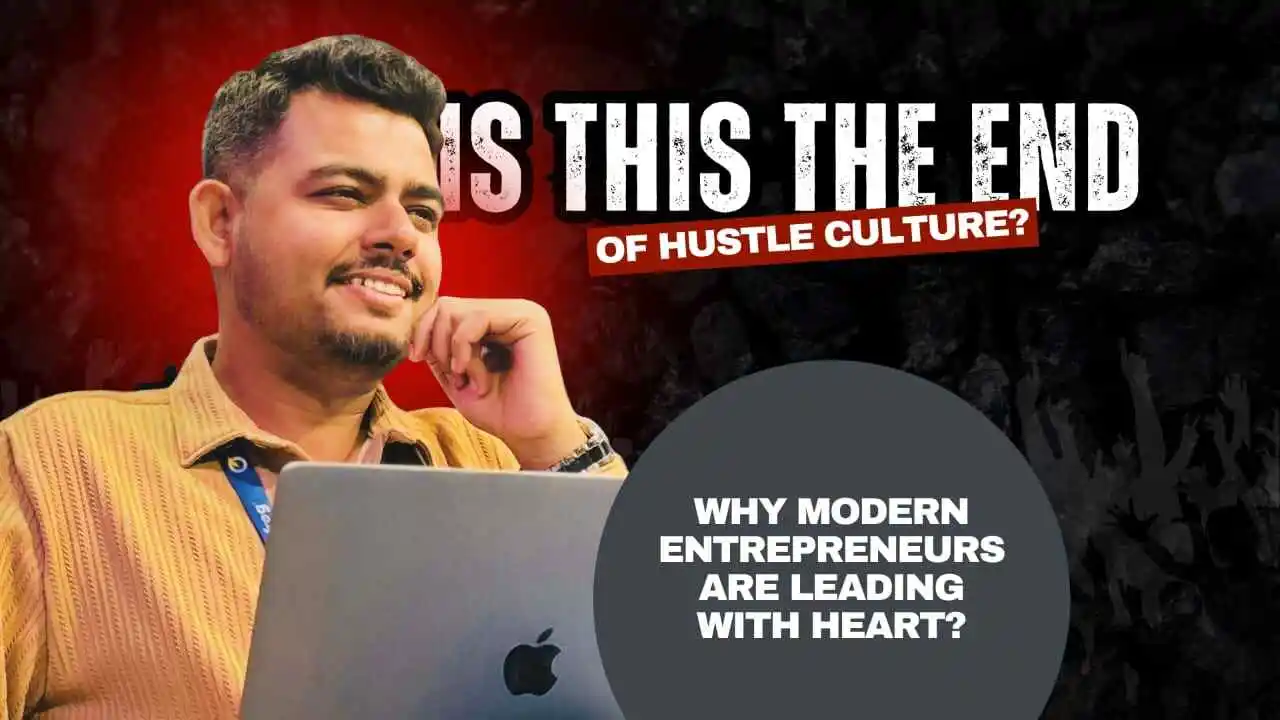India — For decades, entrepreneurship has been synonymous with hustle: long hours, relentless grind, and the glorification of sacrifice. But a new generation of leaders is questioning whether this model truly delivers sustainable success. Across industries, entrepreneurs are trading in the old playbook of “work harder” for one rooted in empathy, emotional intelligence, and people-first leadership.
This cultural shift isn’t just anecdotal. Research from Harvard Business Review shows that emotionally intelligent leaders build more resilient teams, foster stronger client relationships, and drive long-term growth. In an era where artificial intelligence and automation are reshaping industries, many argue that emotional intelligence (EQ) is becoming the most valuable skill an entrepreneur can bring to the table.
One of the voices championing this shift is Utsav Bhanja, an Indian entrepreneur and founder & CEO of Incfrog®, an award winning strategy-driven digital company helping businesses build identities, tell stories, and scale online. Known for his strategic approach to branding & marketing, Bhanja believes that the future of entrepreneurship and leadership lies less in relentless hustle and more in the ability to connect deeply with people — whether they are clients, team members, or communities.
“Hustle culture gave us the initial boost, but it also burned out countless entrepreneurs and teams,” Bhanja says. “Today, businesses that thrive are those that are built on empathy. EQ is no longer a soft skill — it’s a business strategy.”
The Fall of Hustle Culture
The hustle narrative peaked in the late 2010s, powered by social media posts glamorizing 4 a.m. routines and 100-hour workweeks. While it inspired ambition, it also created an environment where exhaustion was worn as a badge of honor.
Post-pandemic, the cracks in that culture became evident. Entrepreneurs began rethinking what sustainable success looks like. Mental health conversations gained traction, employees demanded balance, and investors started paying attention to companies with healthier workplace practices.
The result? A gradual but undeniable pivot from “hustle at all costs” to “lead with heart.”
EQ as the Competitive Edge
For leaders like Utsav Bhanja, this is more than a philosophical stance. It’s a competitive differentiator. At Incfrog, the company’s design & marketing subscription models aren’t just about efficiency — it’s about reducing client stress, simplifying workflows, and building long-term trust.
“When you put yourself in your client’s shoes, you design differently, be it a simple creative, a digital strategy or an UI for their next big thing,” Bhanja explains. “They don’t just need a service provider. They need a partner who understands their pressures, their ambitions, and their brand story. That’s where EQ makes all the difference.”
Industry experts agree. A Deloitte report in 2024 noted that businesses prioritizing human-centered leadership outperformed peers by 25% in revenue growth. The reason? Stronger relationships drive loyalty — both from customers and from employees.
“Whether you’re building a business or serving society, the principle is the same: people respond to authenticity,” he says. “Leadership is no longer about control — it’s about connection. If businesses are built and driven with purpose the outcome is a win-win on both the ends – the balance sheet and the people. Post pandemic we at Incfrog introduced the concept of Appreciation Day where every team member is celebrated for their contributions to the growth of the company as a whole. While there are special awards, no one walks away empty-handed. And the concept has only evolved year after year to promote a more friendly work culture in our organisation and every individual feels included.”
This people-first approach resonates with younger entrepreneurs. Instead of idolizing hustle moguls, many are now looking up to leaders who model balance, purpose, and emotional intelligence. The message is clear: heart is not the opposite of success — it’s the foundation of it.
A Global Trend
The shift is not confined to India. From Silicon Valley startups to family-owned businesses in Europe, leaders are embracing EQ-driven leadership as a response to both technological disruption and cultural change. As AI takes over repetitive tasks, what remains uniquely human are skills like empathy, creativity, and relationship-building.
“AI can design a logo, but it can’t understand what that logo means to a founder who poured their life savings into their dream,” Bhanja points out. “That understanding is human. That’s what clients will always value. I truly feel that one extra step that you take beyond your regular process or script really matters a lot. It improves client retention, boosts team satisfaction and overall growth of an organisation. And when you take care of people, they take ownership of their work. This might not be the case for every individual in the team but for most of them, it really does matter.”
The Future of Leadership
So, is hustle culture dead? Perhaps not entirely. Hard work will always be part of the entrepreneurial journey. But the narrative is shifting. Success is no longer measured by sleepless nights or endless grind. Instead, it’s about building businesses that are resilient, sustainable, and deeply human.
As Bhanja puts it: “The real entrepreneurs of tomorrow will be remembered not for how hard they hustled, but for how much heart they brought into their work.”
And if current trends are any indication, that future is already here.
For more details:
